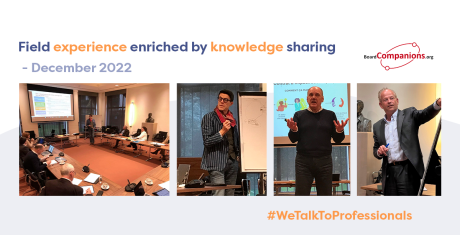When organizing a trip, a guide does not decide alone on the program, the visits, and the accommodation. They consult with the clients, inform them of the “must-dos” and ensure a trouble-free trip. Could the same be said about the auditor and the audit mission?
An audit mission is not a process carried out in isolation. An audit mission is more than the production of a report. An audit mission is a journey to be accomplished jointly by auditor and auditees. The auditor recalls the “must-dos” of control and ensures a trouble-free engagement. The auditees are involved in all stages of the work: planning, risk assessment, definition of resources and means, study of problems, and identification of solutions.
In the co-construction process, the auditees bring their intimate knowledge of the issues and their practical understanding of the business. They also recall the difficulties encountered daily and the pragmatic – and possibly imperfect – solutions that have been put in place. The team formed by the auditor and the auditees allows the work to be constantly balanced between what the standard requires and what is appropriate for the field.
The experience of both the auditor and the auditees becomes essential. This has led some auditors to say that the audit report is no longer useful since they have already studied all the relevant problems together, have worked out balanced corrective measures, and management is convinced of the validity of the actions to be taken.
This also reminds us that the consumption of a service does not follow the same logic as the consumption of a material good. Unlike the consumption of a product, clients start to benefit from a service during the production phase. Don’t travelers daydream about their trip even as they prepare the itinerary? The same is true of the auditees: they benefit from the audit mission from day one, not from the day they receive the report.
The purpose of an audit engagement is to create the desire to improve. If this motivation to improve is present, the KPI “effective implementation of audit recommendations” will move upwards. It will also have a strong impact on the auditees’ experience of the journey. This will perhaps create the desire to bring the audit mission to completion, as well as the eagerness to do it again.




